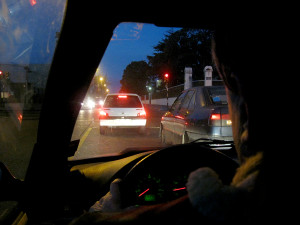The National Transportation Safety Board (NTSB) has announced its top priorities for the next two years with a list of regulations the agency thinks will reduce truck and car accidents. The requested regulations seek to curb the rising tide of accident-related deaths. In 2017, deaths from large truck crashes reached their highest level in 29 years, and car accidents continue to kill more than 40,000 people a year in the United States. So what does the safety agency recommend in terms of new regulations and how will they affect Tennessee drivers?
Accident Avoidance Systems in New Cars
First, the NTSB wants car manufacturers to implement crash avoidance technology in all new cars and trucks. The crash avoidance technology can include a collision warning system, lane assist and automatic emergency braking. These systems can help avoid an accident altogether or, at a minimum, lessen the severity of the accident. Of course, as with any new technology, consumers will have to learn how the technology works and the technology’s limits. For example, none of these technologies will take drive the vehicle for you, but they are another safety component that can help minimize wrecks and injuries.
End Alcohol and Drug Impairment
Crashes caused by alcohol and drug impairment are completely and totally preventable. An estimated 30% of all crashes in 2017 were related to alcohol or drug impairment. In fact, 29 people a day in the United States will lose their life in an alcohol or drug-related car accident. The NTBS is currently advocating for tougher laws and stricter enforcement as well as standardized practices for drug toxicology testing as more and more states move to legalize marijuana use. The NTSB is lobbying for a BAC limit of 0.05 for all drivers. Currently, only Utah has a BAC limit this low, and Tennessee’s BAC limit is currently 0.08. However, more than 100 countries have a 0.05 or lower BAC limit.
End Distracted Driving
Distracted driving comes in two forms: (1) cognitive distraction which is when your mind is focused on something other than driving; and (2) physical distraction where your hands or eyes are not focused on the act of driving. Of course, texting and driving combines both cognitive and physical distractions because your eyes are on your phone, your hands are on your phone and your mind is trying to both drive and read and send messages. The NTSB wants to ban all personal electronic device use on the roadway. The NTSB also seeks stricter enforcement. On that issue, we recently saw an article where some states are placing police officers as passengers in tractor-trailers to look down at drivers and detect those that are texting and driving. The officer then radios to other officers in a police vehicle who stops and tickets the texting driver.
Minimize Fatigue-Related Driving
Experts estimate 21 of fatal crashes involve a drowsy driver, so the NTSB has a number of different proposals but one of the most interesting is requiring commercial drivers of all types including taxi drivers, tractor-trailer drivers, box truck drivers, delivery drivers, bus drivers, etc. to undergo screening for obstructive sleep apnea. Obstructive sleep apnea is a treatable sleep condition which prevents the sufferer from getting quality rest, which in turn leaves them constantly sleep-deprived. Sufferers can use a C-Pap machine to get the optimal level of sleep so they are not operating a vehicle while drowsy.
If you or a loved one has been injured in a car or truck accident, we would like to help. We offer a free, initial consultation, and our award-winning attorneys handle all car and truck accident cases on a contingency basis so we only get paid if we win. We have offices conveniently located in Nashville, Murfreesboro and Brentwood, TN, but we will come to you if you need us to do so for whatever reason. Call us at today at 615-669-3993 (Nashville) or 615-867-9900 (Murfreesboro) or 615-742-4880 (Brentwood) or 866-812-8787 (toll-free).
 Tennessee Injury Law Center
Tennessee Injury Law Center


